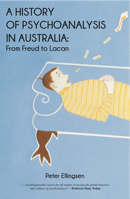In Milan Kundera’s The Book of Laughter and Forgetting, inconvenient truths are dealt with by erasure. It is a crude but effective measure and means that politicians out of favour are painted from the pictorial record.
I witnessed something similar after the Tiananmen Massacre in Beijing when China’s rulers turned what had been a pro-democracy protest into treason. Again, the method was blunt but effective: they screened a video that portrayed student protestors as Taiwanese-inspired insurgents. Given that 3000 people had died in the army onslaught on Tiananmen Square -that was shocking. But what is perhaps worse is that nearly a quarter of a century later, the Chinese Government refuses to acknowledge its guilt and most Chinese born since the Massacre doubt that it ever happened.
In the face of this denial, and the complicity of foreign governments and those of their citizens eager to do business with China, it has been art and literature that have mounted the only effective counter discourse. Writers and painters, more than politicians and academics, have allowed victims to be heard. And – in much the same way that therapy works – they have done it, not so much by laboring the facts and stats of the trauma, but by making its affects manifest. Australian writer, Gail Jones’s short story, Touching Tiananmen, for instance, focuses on the perceptions, feelings and successive experiences undergone by the protagonist, Anna, an Australian tourist who visits Beijing in 1990, a year after the massacre.
Much as can occur in psychotherapy, Anna remembers the tragic event only to end up reaffirming her own forgetfulness of the historical trauma. In the same way that an obsessive patient can separate the memory of an infantile trauma from its emotion, Anna can find no “tell-tale signs” of a massacre. Her memory thus becomes simulacra, ghosts supplied by TV.
The appeal of Jones’s story is how it poses the question: can Anna erase her scars the way Chinese despots scrubbed the square clean of blood? There is no answer – rather an uncertainty that frees up a gap – one that produces the possibility that there is no forgetting, just costly covering-up.
Jones does not explain why we want to forget. As movies such as Total Recall and slogans like “Just do it” suggest, the appeal is obvious: to forget is to imagine you can flush bad memories down the toilet. Interestingly, this is precisely what former Premier Jeff Kennett – who insists drugs are a cure for depression – claims to do. I am not so sure. Neither is Gail Jones, whose story can be read to imply that suffering is the lot of the one who forgets, not the one who recalls. This evokes Freud’s famous observation that what is not remembered is repeated – that is – trying to escape ourselves only means we repeat our mistakes.
Rather than creating historical distance from the past, forgetting restages it. The mechanism is early childhood memory which – because it is consolidated around puberty – undergoes revision. It may not, then, be true in an historical sense, but it is the truth we have made. To shift it is not so much a matter of will, as a re-thinking of the historical scene. This is what Anna does in the story. It is, you might say, a matter of turning the past into history by re-configuring it – re-presenting the significance of events – by a re-thinking that frees up the past from its mere past-ness.
This is what can happen in psychoanalysis. The past events that haunt us are interrogated, so that the significance we have given them is put under the microscope. It is a magnification in which the holes that exist in both memory and history come to light. Rather than cling to what we have lost and perversely loved, we can re-stage it. This is not an acting out but an act, a movement generated by desire. It is desire that comes into being when memory is confronted rather than side-stepped. Looking at what it is we think we have been – and been through – is not just cathartic, it also holds out the prospect of something new. Rather than repeat, which is what we do when we don’t remember, we can discover something fresh.
Writers understand this. Perhaps it is something to do with having to kill off so many platitudes in order to find sentences that resonate. Not to do so is to stay enmeshed in the cut and paste of propaganda and cliché. This can be political, as Kundera illustrates in his book, or it can be personal, as Jones makes clear. In either case, refusing to remember means remaining at the mercy of the memories we try to erase. It sounds odd, but that is the nature of the unconscious which takes us and makes us at our word. To have a choice about how the past becomes history, is not a matter of air-brushing memory. It is a question of recognising the storytelling that continually goes on in the mind. As US novelist William Maxwell observes: “Too many conflicting emotional interests are involved for life ever to be wholly acceptable, and possibly it is the work of the storyteller to rearrange things so that they conform to this end. In any case, in talking about the past we lie with every breath we draw”.

